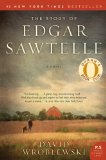Summary | Excerpt | Reviews | Beyond the book | Read-Alikes | Genres & Themes | Author Bio

A Novel
by Rebecca HuntIn this utterly original, moving, funny, and exuberant novel about Mr. Chartwell, a upright walking, talking black dog, an eminent statesman at the end of his career, and the vulnerable young woman.
July 1964. Chartwell House, Kent: Winston Churchill wakes at dawn. There’s a dark, mute “presence” in the room that focuses on him with rapt concentration.
It’s Mr. Chartwell.
Soon after, in London, Esther Hammerhans, a librarian at the House of Commons, goes to answer the door to her new lodger. Through the glass she sees a vast silhouette the size of a mattress.
It’s Mr. Chartwell.
Charismatic, dangerously seductive, Mr. Chartwell unites the eminent statesman at the end of his career and the vulnerable young woman. But can they withstand Mr. Chartwell’s strange, powerful charms and his stranglehold on their lives? Can they even explain who or what he is and why he has come to visit?
In this utterly original, moving, funny, and exuberant novel, Rebecca Hunt explores how two unlikely lives collide as Mr. Chartwell’s motives are revealed to be far darker and deeper than they at first seem.
The conceit at the heart of Mr. Chartwell - the re-envisioning of Winston Churchill's famous bouts of depression as actual visits from a huge, slobbery black dog - is not cutesy or trite, as the book jacket blurb might lead one to fear, but clever and disarming. Rebecca Hunt engages the topic of depression in an inventive way, and the result is not a grim dose of hard truth but a playful meditation on the human condition. This is a novel about depression that even a depressed person can enjoy - indeed, a depressed person might find it radically cheering...continued
Full Review
(639 words)
This review is available to non-members for a limited time. For full access,
become a member today.
(Reviewed by Jennifer G Wilder).
Winston Churchill (1874-1965), the famous British prime minister who told Hitler "we shall never surrender" during World War II, was not the first to describe depression as a "black dog." The Oxford English Dictionary cites earlier uses of the phrase in literature and in nursery lore; for example, a sullen child was said to "have the black dog on his back." But Churchill was the most famous, and the expression is now indelibly linked to him.
Most of what we know about Churchill's black dog comes from a memoir his personal physician, Lord Charles Moran, published after his death. "In his early days," Lord Moran writes, "he was afflicted by fits of depression that might last for months. He ...
This "beyond the book" feature is available to non-members for a limited time. Join today for full access.

If you liked Mr. Chartwell, try these:

The Life and Opinions of Maf the Dog, and of His Friend Marilyn Monroe
by Andrew O'Hagan
Published 2011
In November 1960, Frank Sinatra gave Marilyn Monroe a dog. His name was Mafia Honey, or Maf for short. With style, brilliance, and panache, Andrew O’Hagan has drawn a one-of-a-kind portrait of the woman behind the icon, and the dog behind the woman.

by David Wroblewski
Published 2009
Born mute, speaking only in sign, Edgar Sawtelle leads an idyllic life with his parents on their farm in remote northern Wisconsin. But his life is plunged into chaos as his uncle returns, his father suddenly dies, and he is forced to flee into the wilderness with only three yearling dogs for company.
We've heard that a million monkeys at a million keyboards could produce the complete works of Shakespeare...
Click Here to find out who said this, as well as discovering other famous literary quotes!